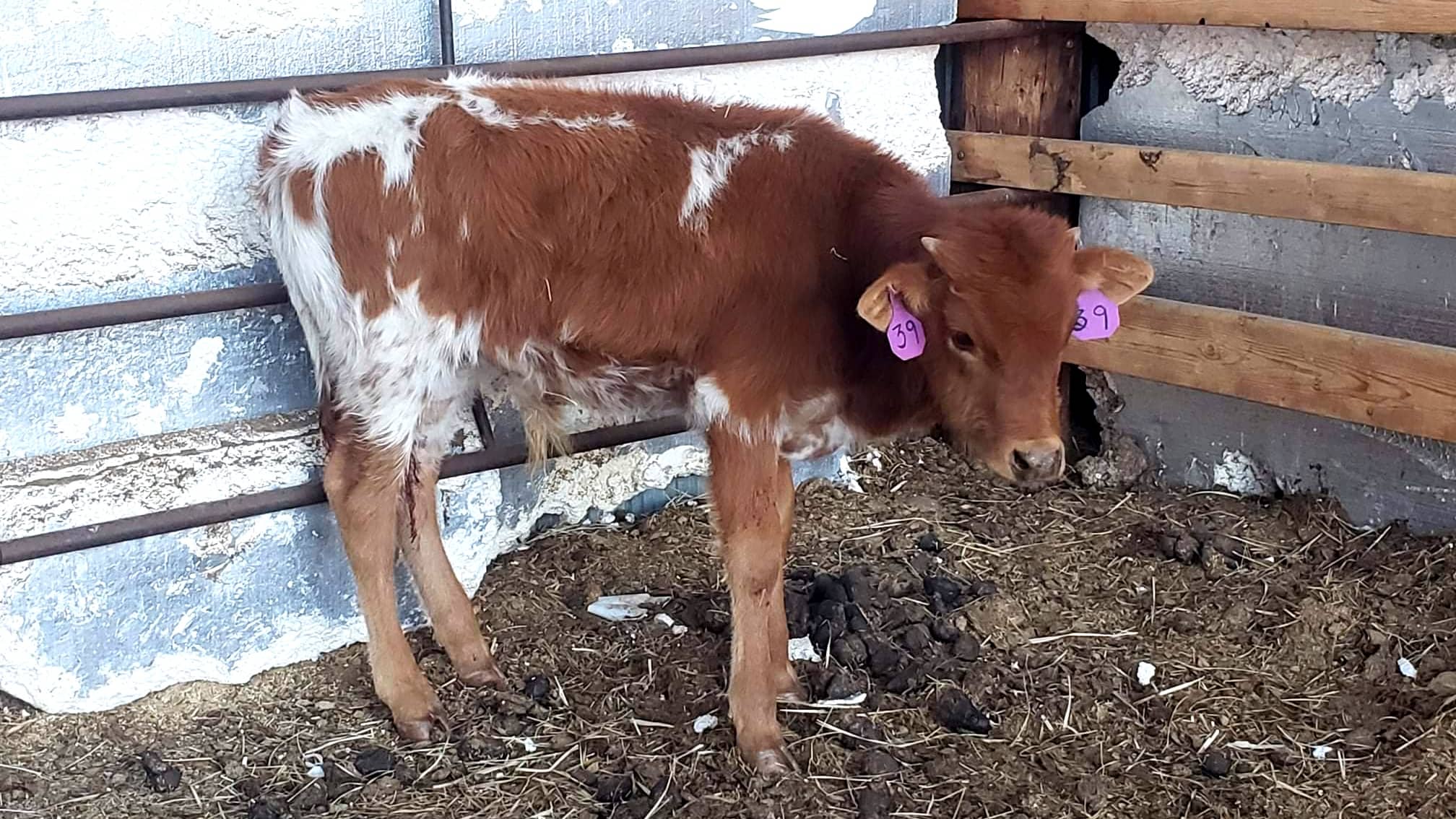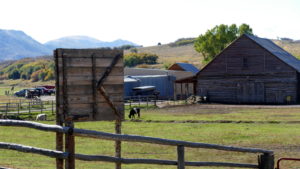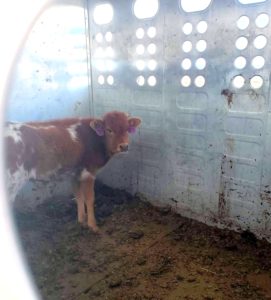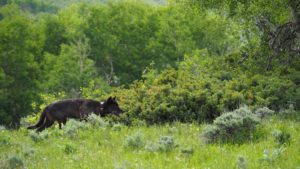
By Shannon Lukens. Photo of injured calf is courtesy Mandie Shoemaker.

UPDATE (Dec. 2022): The dead calves in Meeker are not a wolf attack. An investigation is continuing.
New wolf depredation incidents are being reported in northern Colorado. First, in Rio Blanco County, just south of Meeker, Colorado Parks and Wildlife has confirmed 18 head of 600-pound calves were attacked and killed by wolves. It was reported Oct. 14 and it happened over two weeks. Fence Post Ag News is reporting it is on the LK Ranch, owned by Lenny and Jackie Klinglesmith. The cattle were up in their summer pasture, when the wolf depredation incidents were discovered. Travis Duncan with Colorado Parks and Wildlife says necropsies on each animal have been performed and it is an active investigation. The Klinglesmiths are not doing interviews at this time but there is a report in Fence Post Ag News.

A second Colorado wolf depredation incident was in the past few days in Jackson County, near Pole Mountain, according to Adam VanValkenburg who is the president of the North Park Stockgrowers Association.
“There was a calf that was attacked by a wolf. That has been confirmed by the local CPW. And as of right now, they are doing a necropsy on a second that is believed to have been killed by a wolf by the rancher.”

A pack of six black wolves and one gray wolf have been reported in Jackson County, and have been responsible for the deaths of five cows, two dogs, and a calf. Another rancher got a video of the pack crossing Jackson County Road 28 on Sept. 18.
Video of wolf pack in Jackson County

Adam VanValkenburg and Lenny Klinglesmith were recently at a gathering of nearly two dozen Colorado livestock ranchers and educators in Montana. Routt County Rancher Jo Stanko was there along with Todd Hagenbuch, who is the Agriculture Agent and County Director for the CSU Extension Office in Routt County. They met with Montana ranchers who have been dealing with wolves for 20 years, to learn how best to manage the wolves in Colorado.
VanValkenburg says the Montana ranchers say lethal management best changes a wolf’s behavior. That can be done through hunting, or if a wolf is attacking or harassing livestock.
“The best answer from what I learned from Montana is that lethal management needs to be an option. It needs to be a tool in the tool box because it replaced the bad wolves with the good wolves. The good wolves had moved in two days after the bad wolves were removed. And the ranchers up there, if they had a good wolf pack that wasn’t killing cattle on the ranch, they left them alone. If they were bad wolves and had a bad wolf pack, they would remove them and a good pack would move in.”
He said Colorado Parks and Wildlife is working on the plan to implement the reintroduction of wolves which was a statewide voter-led initiative that passed in November of 2020. But wolves are already here, as reported in Jackson and Rio Blanco counties. He says the best thing to do now is to move forward since ranchers have to deal with it.
Colorado ranchers are not allowed to shoot a wolf. If they do, it’s one year in jail, a $100,000 fine, and the loss of hunting privileges for life.
Jo Stanko says one thing that is important right now is to report any wolf sighting, anytime and anywhere, for preventative strategies.
“If you see one, it doesn’t necessarily mean it’s going to stay there. But it’s nice to know where they’re going and what direction they’re going.”
Wolf sightings can be reported on the Colorado Parks & Wildlife website. And she says to let your fellow ranchers know.
The trip to Montana was to educate ranchers and educators was made possible through a USDA grant, to help educate ranchers to prepare themselves for wolves and other depredation attacks. Todd Hagenbuch is the Agriculture Agent and County Director for the CSU Extension Office in Routt County.
“This trip to Montana was to educate ranchers and CSU educators alike was made possible from a grant through the Risk Management Agency which is through USDA so that we can help educate ranchers on how they can prepare themselves for wolves and other depredation attacks. We need to prepare ourselves. Even without reintroduction, we see that wolves are coming here. And a calf lost, whether it is by a wolf or a mountain lion or pneumonia, it has a real impact to the producer’s bottom line. So whatever we can do as educators, as we always have, in CSU Extension, to help people understand how they keep their livestock safe, and get them to the finish line, is our goal.”
We have reached out to Colorado Parks and Wildlife via text and email on Sunday, Oct. 9, and have not yet heard back.